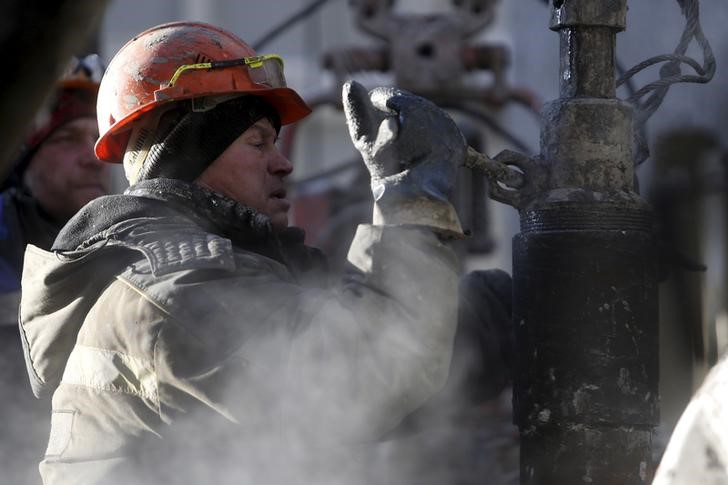By Geoffrey Smith
Investing.com -- Crude oil prices tumbled on Monday as the discovery of a new strain of the Covid-19 virus prompted fears of tougher lockdowns in the near term, with significant negative consequences for consumption.
By 9:15 AM ET (1415 GMT), U.S. crude futures were down 4.5% at $47.04 a barrel, having earlier touched an intraday low of $46.25%. Brent futures likewise plummeted as far as $49.21 a barrel, but recouped some of those losses to trade at $50.01 a barrel, down 4.3% on the day.
U.S. Gasoline RBOB Futures were down 4.5% at $1.3335 a gallon
The market had been more than a little vulnerable to a sell-off ahead of the news, thanks to a 50% rally since the start of November on the back of vaccine approval news that encouraged traders to take a bullish stance on demand for 2021. Ole Hansen, head of commodities research at Saxo Bank, noted via Twitter that the net speculative long position in Brent and WTI futures had risen by 250 million barrels in the six weeks through December 15.
Over the weekend, the U.K. government had abruptly reversed its plans to relax restrictions on social gatherings over the Christmas period, instead instituting a new and tougher regime for south-east England, where the new strain of the virus is concentrated. That region includes the capital London.
Countries from Europe to Turkey and India severed transport links with the U.K. in response, fearing the spread of a new strain that U.K. government scientists said was more contagious than the original Covid-19 virus.
There is no evidence yet to suggest that the new strain is more virulent or resistant to the vaccines that are working their way through the global regulatory process.
Market sentiment wasn’t helped by newswire reports suggesting that Russia, a linchpin of the OPEC+ producer bloc, is in favor of raising collective production by another 500,000 barrels a day from February 1. Fears of a fresh hit to demand from the pandemic amplify the threat of increased supply in six weeks’ time.
Elsewhere, European major Royal Dutch Shell (NYSE:RDSa) provided a gloomy backdrop to trade by saying it expected to lose money on its upstream businesses in the fourth quarter and write down as much as another $4.5 billion in assets in its quarterly results. In the U.S., meanwhile, there were fresh signs of sector consolidation as Diamondback Energy (NASDAQ:FANG) agreed to buy rival QEP Resources (NYSE:QEP) for $600 million plus another $1.6 billion in debt. Diamondback will also buy various leases and other assets from unlisted Guidon for $850 million.
